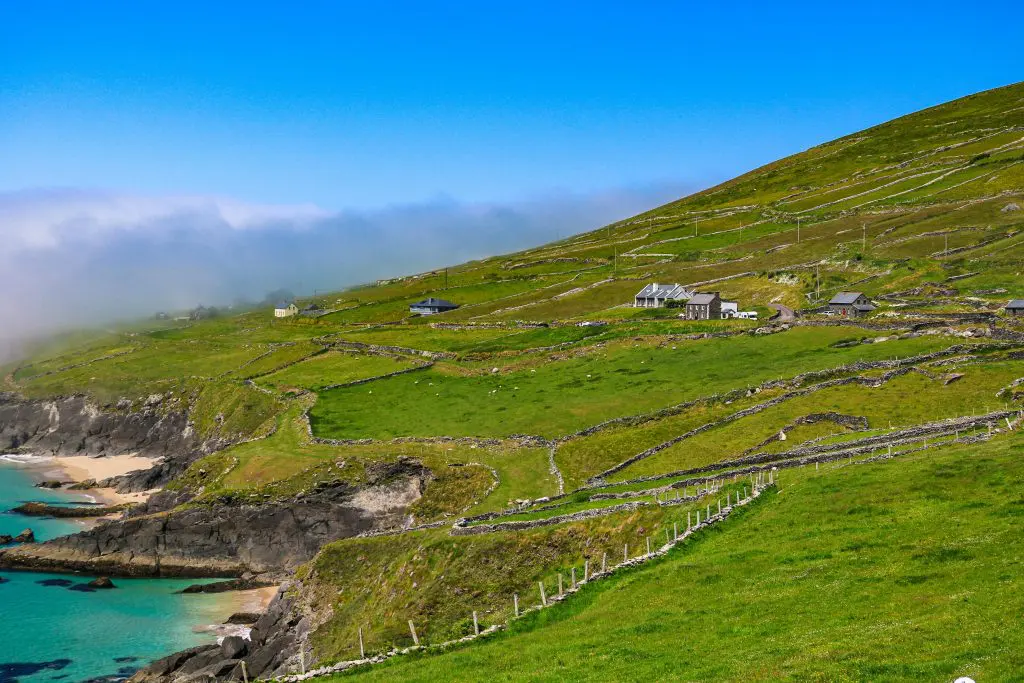
Ireland’s natural environment is in a “very poor” state, according to a new report by the European Environment Agency (EEA), which finds that economic growth has come at the expense of the country’s environmental health. The findings are part of the EEA’s State of Europe’s Environment report, published every five years, assessing all EU member […]
Ireland’s natural environment is in a “very poor” state, according to a new report by the European Environment Agency (EEA), which finds that economic growth has come at the expense of the country’s environmental health. The findings are part of the EEA’s State of Europe’s Environment report, published every five years, assessing all EU member states and neighbouring countries.
The report paints a stark picture of Ireland’s biodiversity:
85% of Ireland’s protected habitats are in unfavourable condition.
Nearly one-third of protected species are assessed as having poor conservation status.
Over half of native plant species are in decline.
More than 50 bird species are now of high conservation concern.
The EEA warns that “significant measures are needed” to reverse these trends, calling into question Ireland’s reputation as a green, nature-rich country.
The condition of Ireland’s natural waters is also under scrutiny. The EEA states that there has been no improvement in the quality of rivers and lakes in the past five years. The primary pressures include:
Agriculture and forestry runoff
Urban sewage discharges
Alterations to riverbanks and water flows
The report stresses that compliance with EU water obligations remains a challenge for Ireland.
Ireland’s agriculture and food systems are described as “too intensive” and environmentally unsustainable in their current form. The intensification of livestock farming, in particular, is cited as a key driver of environmental degradation, linked to water pollution, habitat loss, and greenhouse gas emissions.
Despite improvements in renewable electricity and public transport, Ireland still shows a heavy dependency on fossil fuels and private vehicles. The country’s transport emissions remain high, and the shift to sustainability is considered too slow.
The EEA criticises Ireland’s lack of progress in transitioning to a circular economy. It highlights a continued pattern of:
Material overconsumption
Increasing waste volumes
Heavy reliance on waste exports
“Ireland’s economy remains substantively linear,” the report states, adding that the failure to reduce waste and reuse materials is undermining sustainability goals.
Another key concern is the low level of government spending on environmental protection. Ireland ranks bottom among EU member states, investing just 0.9% of GDP in this area, compared to an EU average of 2.2%.
Ireland has shown strong performance in sectors like tech, pharmaceuticals, and foreign investment, but its green innovation and cleantech sectors lag behind EU leaders. The EEA report indirectly points to a strategic gap: Ireland could be leveraging its environmental challenges as opportunities for economic diversification.
Potential areas for investment include:
Circular economy startups focused on waste reduction
Renewable energy infrastructure, including offshore wind
Sustainable agriculture technology, such as precision farming tools
Ireland’s environmental crisis, while urgent, could also be a catalyst for a new green industrial strategy—if government and private sector alignment is achieved.
The Irish Government has taken some steps, including:
A Water Action Plan (published in 2024)
An upcoming Nature Restoration Plan
A Land Use Review currently in progress
However, the EEA warns that existing plans are not sufficient to meet the scale of environmental challenges. The report stresses the need for “scaled-up investment” in infrastructure for water, waste, energy, and transport to support a sustainable economy and population.
While Ireland is singled out for several shortcomings, the EEA notes that nature across Europe is in decline. Over 60% of species and nearly 80% of habitats in the EU are in poor or bad condition.
“The overall state of Europe’s environment is not good,” the report concludes, “especially its nature, which continues to face degradation, overexploitation and biodiversity loss.” It warns that environmental decline poses risks not just to ecosystems, but also to Europe’s economic stability, security, and quality of life.
As an EU member state, Ireland is bound by directives on habitats, water quality, air pollution, and climate targets. However, the country has repeatedly been flagged for non-compliance or delayed implementation of key directives.
Ireland’s environmental credibility is particularly important given its influence in EU negotiations on agriculture and climate. Taking a leadership role on biodiversity and climate policy would not only benefit domestic ecosystems, it could also strengthen Ireland’s voice within the EU and globally.
The EEA’s assessment delivers a clear message: Ireland’s current trajectory is unsustainable, and urgent, transformative action is required. Environmental progress cannot lag behind economic growth. Without decisive steps to protect habitats, reduce pollution, and shift toward circular and climate-resilient systems, Ireland risks deepening its ecological crisis, and missing critical opportunities to lead in a greener future.
At All-Ireland Sustainability, we’re committed to building a greener, fairer island, together. Stay informed on the latest environmental initiatives, community action, and policy developments shaping sustainability across Ireland, North and South.
👉 Sign up for our newsletter today and be the first to hear about upcoming events, expert insights, and ways to get involved.
Whether you’re a seasoned advocate or just starting your journey, new members are always welcome.
Subscribe now and be part of the All-Ireland Sustainability Membership.